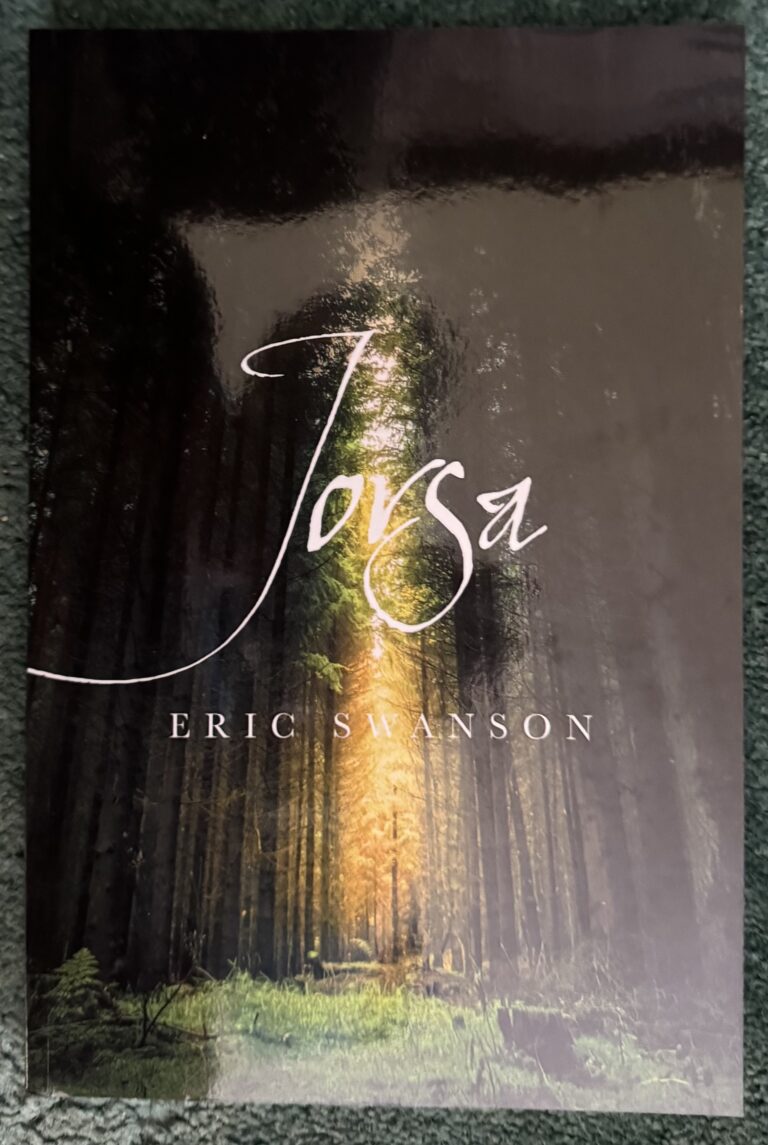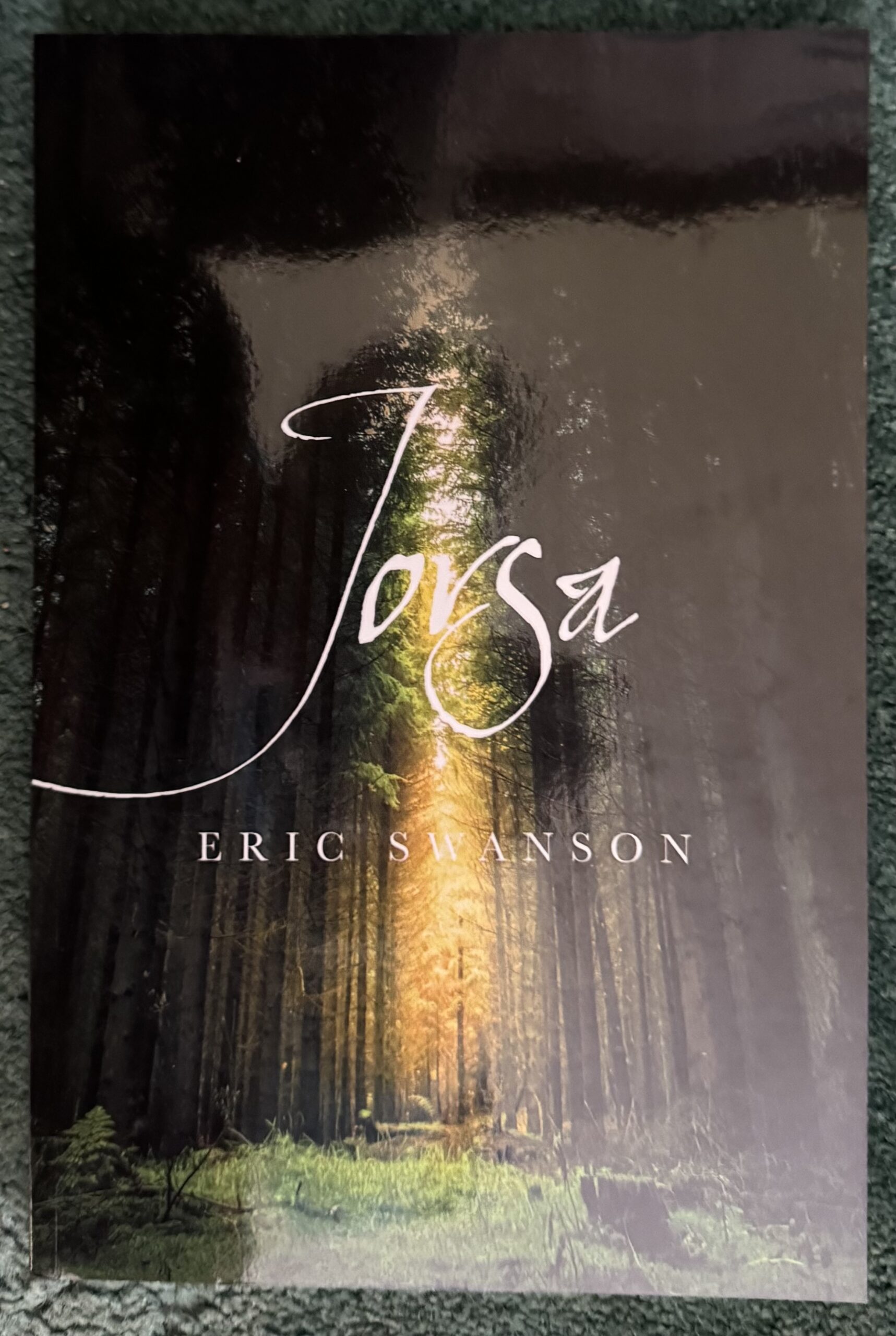The power-hungry Torish has been imprisoned in a realm of darkness, but his son Tilif is free to wreak havoc on the elves, dwarves, and humans who inhabit Higherland. When Tilif attacks the human settlement of Kor, a mixed group of elves and humans fights back. But it is only Jorsa—the son of a king, with unique blue skin—who pursues Tilif through a series of challenges to free his imprisoned friends.
There is definitely a broad underlying structure to Eric Swanson’s JORSA, pulled mostly from Christianity. Torish, banished for attempting to usurp the power of Karlek, is a clear analogue for Satan (who attempted to usurp the power of God). There is a semi-divine being, Lef, who appears and disappears at will, offering limited information and assistance to propel Jorsa forward. Karlek and Lef have powers that are mitigated by “unbelief” (a telling choice of word). However, this is the only structural principle. The plot moves through a series of disconnected spaces with no geographical logic—to such a degree that it’s unclear whether these are real places, places where Jorsa travels magically, or simply metaphysical spaces inside his head. The characters are not particularly grounded, either, giving the reader little to grab onto. They seem to appear and disappear at will, without explanation for why. Combined with the disorienting movement from space to space, it’s hard to keep track of what’s actually happening for most of the book.
JORSA also has an unusual, disjunct tone. The story is set in what appears to be a standard Tolkienian fantasy world; mythic Christian underpinnings support a world of humans, elves, and dwarves—all of whom fight with bows and arrows, swords, shields, and sometimes magic. But this high-fantasy tone is undercut by the language. Characters refer to their parents as “mom” or “dad,” using very modern, very casual language; some characters themselves have oddly plebeian names. There’s no essential problem with names like Kate or Susan, but next to Jorsa, Tilif, Lef, and others, it feels like there’s a disconnect between the naming conventions that undermines the world-building. Near the end, Jorsa also traverses some outright modern spaces, including a casino full of zombie-like creatures playing slot machines. There’s nothing inherently wrong with this— there’s lots of good modern and urban fantasy set in the 20th or 21st century!—but JORSA doesn’t take place in such a setting, and it’s confusing to suddenly end up in one near the end of it.
JORSA also needs another round of prose editing. Especially in the second half of the text, a few typos have slipped through; in several instances, a homophone or an incorrect word is used (e.g., hollowed for bellowed, intimated for intimidated). But this is only the topmost layer of work to do here. JORSA needs a better sense of how its world works (and better storytelling fundamentals to explore that world) to really engage the reader.
Eric Swanson’s JORSA occasionally has a certain lyrical, dreamlike prettiness; but without clearer character motivations and firmer internal logic, the action can feel confusing and the narrative unsupported.
~Dan Accardi for IndieReader


